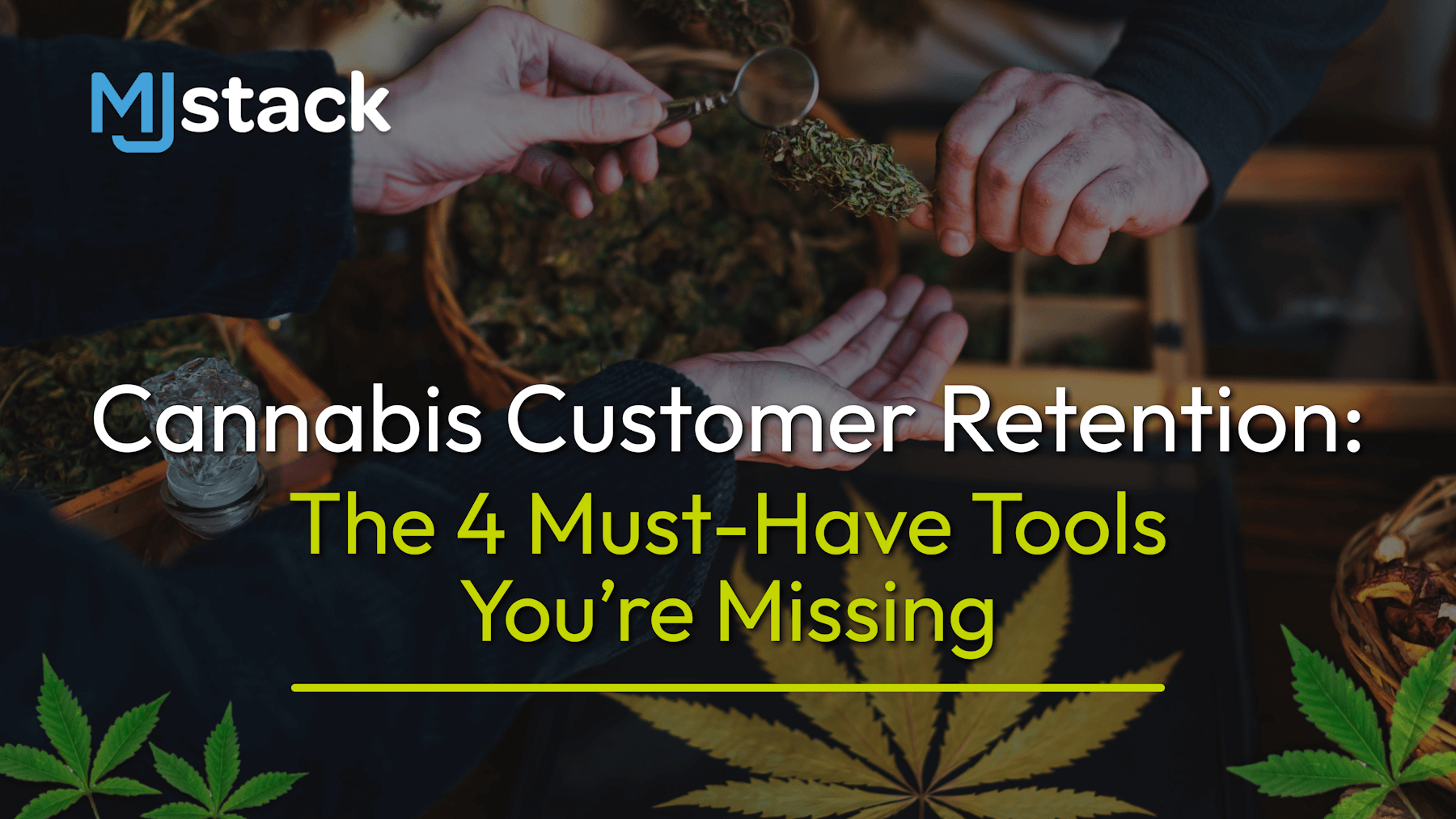If you’re a budding cannabis business in Oklahoma, then you likely already know that in 2020, the Oklahoma Medical Marijuana Authority (OMMA), signed a contract with Metrc to implement a statewide seed-to-sale tracking system.
If you aren’t familiar with Metrc (Marijuana Enforcement Tracking Reporting Compliance), it’s a popular state-mandated traceability software platform developed by Franwell for tracking the production, manufacturing, testing, distributing and selling of cannabis products.
So what does this mean for your Oklahoma cannabis business? Well, it means you can expect a change to your daily habits, more consistency, and likely more paperwork and documentation! But it also presents an opportunity to really hone in on your cannabis tool stack in a way that enables you to optimize and automate some of these processes.
Metrc compliance is going to be crucial for the success of your business as well as the happiness of your customers moving forward, but it won’t happen fast.
“From our experience in the other Metrc states, a successful transition begins nine months before implementing inventory into Metrc. Proactive licensed operators mitigate stress with the overwhelming regulatory transformation by building compliant operations infrastructure, extensive employee training, consistent compliance audits, and a compliant technology stack for Oklahoma’s MMA’s requirements,” says BriAnne Ramsay, CEO of Rocky Mountain Cannabis Consulting (RMCC).
In part one of this two-part series, we’re going to look at what you need to know about label and tag requirements as well as importing products into Metrc so you can prepare accordingly.
Expect some changes in the way you label your cannabis products. Metrc will have specific rules on how to properly label products to both protect and inform customers. And these will very likely differ from current OMMA requirements.
That’s why it’s going to be crucial that your current system can handle any new label requirements that might be coming down the road, or risk having your business operations delayed.
It’s also important to know that all plants and packages in Metrc must have a Unique Identifier (UID), which is an alphanumeric code used to identify a specific plant or cannabis product. These are referred to as “items” within Metrc and include two types of tagged inventory: plants and packages.
Packages are groups of items that are prepared for transfer or sale to another licensee. All cannabis or cannabis products must be placed into one or more packages and each package must have a distinct UID for tracking.
Get ready to familiarize yourself with Metrc tags, which are Radio Identification (RFID) tags for your cannabis plants and products. You’ll be required to purchase these directly from Metrc. If you’re able to, it’s a good idea to order tags as soon as you can, and most importantly, don’t run out of tags! This will prevent you from packaging or transferring any new material, and delay business operations.
You’ll also need to factor in additional costs to your business. Metrc charges $40 per month per license reporting fee for access to the Metrc platform and for ongoing training, support, and maintenance, and tags will cost you $0.45 per plant tag and $0.25 per package tag.
If you want to stay compliant, start getting the right compliance tools and implementation processes in place now so you’ll be prepared when Oklahoma’s specific Metrc labeling and tag requirements are published.
If you need support, there are a variety of cannabis-specific compliance vendors out there like RMCC that can help guide you in all aspects of your Metrc implementation. And if you want to see if your current technology stack can handle a Metrc transition, take the Technology Stack Aptitude Test.
Moving forward, you’ll need to make sure you are purchasing your cannabis products from an approved Metrc vendor. And this also means that you’ll want to ditch any non-cannabis specific technology you might have been using previously.
You will need to physically receive any products out of Metrc before you can import your inventory — this applies to vertically integrated cannabis businesses, too.
“With the pending implementation of Metrc in Oklahoma, companies unfamiliar with the regulatory technology should prepare for a significant change in operations and inventory management. Having operated in other markets that use Metrc, we have developed a proven system of compliance internally and look forward to the increased regulation in Oklahoma. Our local partners have all been trained on Metrc and are ready for the change. Additionally, it will be a requirement for our employees to participate in Metrc training once it is available in Oklahoma,” says Josh Riggs, chief operating officer at Star Buds, a Colorado-based dispensary with stores across the U.S. and Jamaica, including 14 locations in Metrc states and 8 locations in Oklahoma.
Organization is going to be key because once Metrc arrives, you’ll need to get your inventory correctly tagged, assigned and set up in the system.
This means that before importing sales data into Metrc, you’ll want to establish a consistent and simple naming convention for your cannabis products. This is yet another reason to switch to a cannabis-specific technology that understands the cannabis business as well as the compliance regulations.
As the Chief Compliance Officer from RMCC, Lindsey Kincade says, “Dispensaries face enormous regulatory obstacles within an ever-changing framework. The reality is that it can be a challenge to spare precious resources for building a dedicated compliance team that monitors this evolving landscape. That’s why many cannabis businesses opt to work with a compliance partner like RMCC that can help lift this regulatory burden without cutting into their main goal of servicing their customers.”
Remember, Metrc will now be your single source of truth between your business and the state’s compliance mandates, but you don’t have to do it alone. There are plenty of third party cannabis partners that can help you stay compliant, and save you time and money while also offering insights to help boost operational efficiency.
If you don’t have confidence that your current systems in place can handle the new Metrc standards, let’s chat. You can request your free consultation here.
If you’d prefer to meet with us in person, contact us here and we’ll reach out ahead of time to get a meeting on the books.













